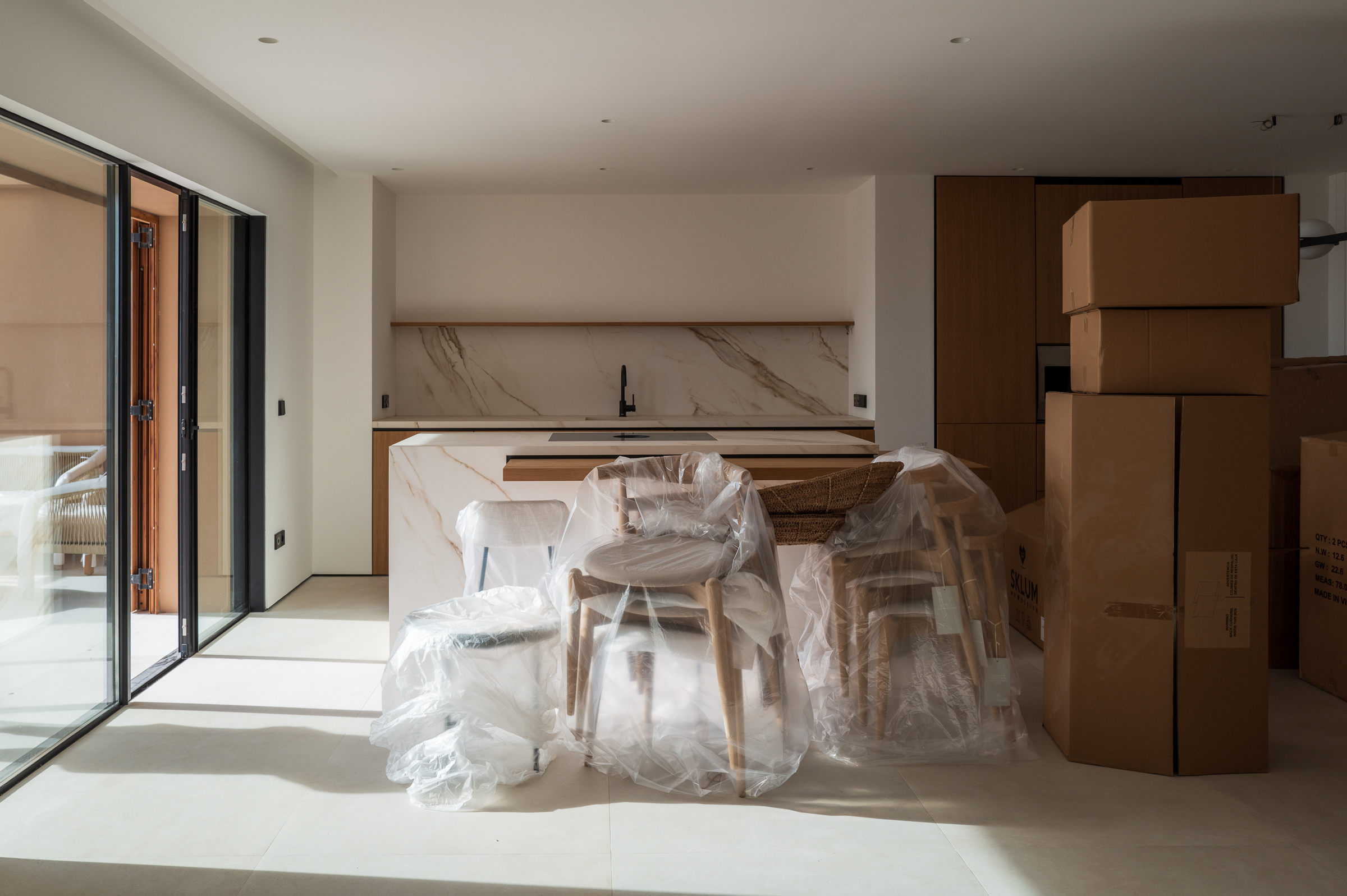The idea is good, but the implementation does more harm than good. Rent controls have been around for a long time. And their harmful effect has been known for a long time. And this despite the fact that they are really well-intentioned. And they are absolutely necessary to avert the threat of further division in our society. We must help small and medium incomes to get out of the "housing" cost trap!
The devil is in the detail
There are many approaches, such as, in extreme cases, the "socialisation of property", which recently came closer in Berlin through a referendum that is not binding on the senate, to bring the state back into a stronger role of power. Or less extreme, but basically just as much an encroachment on property rights, the various rent brakes that countries and states in Europe are currently trying.
What exactly is the cause of the shortage of housing, especially in urban centres? That's right, more people need housing. More than there is housing available. But what are the drivers?
- Inflow from rural regions and migration movements
- Demographic developments (more single households, more micro households)
- Weekly commuters need housing in order to be at least partly at the place of work during the week
- in popular locations, the luxury market subtracts residential space that is rarely used
Looking more closely, the first trend is starting to change again since Corona. More people are moving to the suburbs again, and property prices there have risen by leaps and bounds. However, this applies mainly to families with rather higher incomes. The demographic development and also the weekly commuting bring other problems with them, namely that other types and forms of housing are being sought here. Very small flats. Barrier-free living. Living with a concierge. Living with workspaces are keywords that come up frequently.
At the same time, building regulations have become massively stricter in the last ten or more years. Extensive fire protection regulations, energy-efficient construction, etc. simply make building more expensive.
And then there was inflation
If we now add the explosive increase in material costs in construction, we have long since arrived at a massive inflation that only the statistical basket of goods does not reflect. Opium for the people. Look at the development of rents over the last ten years. And look at the development of disposable income. Then in many cases we are already well beyond the point where rent brakes could still have sufficient effect. Instead, we are at the point where a new rental contract has simply become impossible for a large part of the population!
The dream of owning your own home?
For the middle class in conurbations, this has long been a dream! We used to have programmes in which socially subsidised housing was built by private investors who received low-interest loans in exchange for a long rent control period for the subsidised flats. This worked well as long as the general interest rate level was higher. But since all the central banks in the world have been unabashedly printing money and buying up junk paper, capital has - oh wonder - discovered concrete money in search of a safe haven.
As a result, the factors for apartment buildings, which the experts call the multiplier between the annual cold rent of a building and its purchase price, rose from 7-10 to 25-50. The returns, i.e. the profit on the capital invested, fell accordingly from around 8% to around 3%. Sure, better than penalty interest on the bulging account. But basically, after the costs of management and maintenance, a landlord who calculates seriously is no longer in business.
Which rent brakes work?
There are a few mechanisms of rent brakes across Europe that I have looked at. And with all of them it is very easy to explain why they are not only bound to fail. They achieve the opposite of their well-intentioned goal.
Income-dependent rents
Perhaps the craziest idea came - who would have thought it - from Berlin. The first attempt was to link rent brakes to the fact that a certain share of the tenant's income would not be exceeded by the rent. Nice thinking. But what would that logically have led to? That landlords would only accept tenants with higher incomes for their flats. And that would really be the most anti-social effect that rent controls could have.
Rental prices are fixed at a rent index
Probably the most equitable idea there can be in theory. Unfortunately, it is very time-consuming to collect data and implement. Many countries and cities still do not have a rent index.
And since the devil is in the detail and the statistically ascertainable premiums for higher-quality fittings are only very small, this form also leads to the fact that the still scarce living space is neither extended nor renovated. Because there is enough demand. And the price is capped. In fact, the only ones to benefit are the tenants of luxury flats. And that is really an antisocial consequence of a socially intended regulation.
Rent increases are temporarily "suspended
Basically not new at all. Because rent increases have been allowed only marginally for years in all the rental laws I know of in Europe. Or can only be justified by more extensive renovations, depending on the country. In fact, the stock of old contracts would be "protected" here.
But this helps neither those who are moving in. Nor does it help someone who wants to downsize, for example, for reasons of age. And finds out that the one-room flat in the new lease costs more than the four-room flat in his old contract.
So basically rent controls are a good idea? Yes and no. It doesn't create living space... But at least it does less harm than the other measures. Probably prevents real measures because "we did something..." and the pressure of suffering is at least alleviated.
What does capital do?
Water finds its way. Capital too.

The discussions about expropriation and rent controls alone have caused people to reconsider investment plans. Or that instead of a normal apartment building, a boarding house was built, which is not taken into account by rent controls. Or that only commercial tenants were accepted by landlords. Or that luxury flats were finally built and sold. Instead of creating real housing. So: no matter which rent control was implemented, no matter where. The creation of affordable housing was always further reduced.
So: the social explosives are there. And it is not getting any better. It is not acceptable that millions of households in Germany have to invest too much of their income in rent. And it is also not acceptable that buying is no longer an option for precisely these households. And this is exactly where "antisocial" comes into play again: by increasing the state share. By devaluing savings and by promoting inflation through state institutions, the promise of upward mobility that was the motivation and driving force for the German Michel has been broken. And the part of the population that was able to accumulate wealth became significantly smaller. As a result of state intervention.
So what to do?
Building: Demand-oriented. Economical. With incentives. For all.
We have to relieve small incomes. It is always argued here that the tax burden on low earners is low. Theoretically, this is also true. But they act as if the costs of the social systems, which have been capped at 40% by law for employers and employees, are not taxes. How anti-social is that? We force small and middle-income earners, of all people, into a system that increases their labour costs by 40% and then claim that it would be social if the progression in the tax rate started a few thousand euros higher up? Yet the actual tax burden is exactly these 40% points higher! And the higher earners, such as self-employed entrepreneurs or executives and all civil servants, are exempt or can be exempted.
Absurd! This burden must be spread more widely. In my opinion, we need a citizens' insurance. And I'm sure that every high earner would have to join in here just out of a sense of justice and logic. And we don't need 40 different health insurance companies, which are virtually nationalised anyway. One is enough. One that is more efficient. No money wasted on marketing. And has a uniform administration.
And with the air gained for small and medium incomes, it must be made possible for precisely this social class, which has made Germany strong and will hopefully make it strong again, to accumulate assets. It is precisely private provision, which in the end also prevents too small pensions in the interest of all, that must be promoted.
And why shouldn't real estate funds or cooperatives be just as eligible as life insurance? If we can spread the product "renting" over more shoulders again, then building will be worthwhile again. And if subsidies flow into society on a broad front and a broad front participates in asset accumulation, then asset accumulation will once again become socially acceptable and the promise of social advancement that shaped our country's success in the post-war period will once again become credible.
I wanted to get this off my chest. I don't expect everyone to share my opinion. But I would be very happy to receive constructive criticism and perhaps better ideas on how to solve the existing problem. Why am I upset? On the one hand, I am a landlord. And of course rent brakes have potential economic effects for me. And I rent in the luxury segment as well as in the very "normal" segment and I see how that is drifting apart more and more. And I believe that we as a society have to address and solve this issue. But not in a populist way that ends up destroying more than it benefits.
Arnd
have started a small collection of links on the topic that I found during my research: (last update: 12.10.2021)
Wikipedia (source: wikipedia.org, as of 12.10.2021):
"A rent control (also rent freeze, rent freeze or rent brake) is a mostly governmental determination of rent prices by means of legally standardised maximum prices or a prohibition or restriction of rent increases within the framework of housing tenancy agreements.
In 2016, 14 of the 36 OECD countries had some form of rent control in place,[1].
including four states in the United States.[2]
Rent control is one of several proposed measures for the creation of affordable housing, along with social housing or housing subsidies.
There is a scientific consensus among economists that rent control reduces the quality and quantity of rental housing units.[3][4][5][6][7][8][9]„
The Mietpreisbremse does harm (source: H.A.Z., as of 20.08.2019) [unfortunately partly behind paywall].
here are two older articles:
Misconstruction of the Mietpreisbremse - Concept only works for luxury flats (Source: rbb online, as of 21.11.2013 )
The price spiral in the housing market remains unchecked (Source: WirtschaftsWoche online, as of 22.09.2015)




